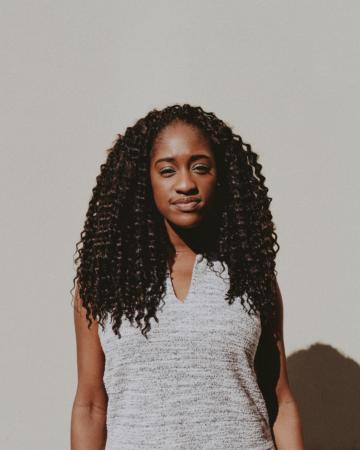Coworking spaces are popping up around the country to serve different niches of business owners, creatives and everything else in between. These alternative offices are helping entrepreneurs build their networks and grow their businesses, but founders of color are finding that some of these spaces lack inclusivity.
Naj Austin saw a void in her Brooklyn neighborhood: There were no spaces that specifically targeted people of color and the businesses they were building. She made it her mission to fill that gap.
Austin built Ethel’s Club, a social club for people of color that serves as a personal and professional haven for minority business owners. It joins a host of other social clubs opening in New York City, but it is one of the few completely dedicated to fostering an environment for founders across various racial and ethnic backgrounds.

According to a report by AllWork, coworking spaces accounted for nearly ten percent of leasing volume in New York during the first half of 2018, making it one of the top places for flexible workspaces.
WeWork is currently the largest office space provider in New York, but Austin said the company doesn’t solve the issue of inclusivity the way Ethel’s Club will.
“What’s missing generally in the landscape [of coworking spaces] is there isn’t a place that centers specifically on POC identity,” Austin said. “I actually just left a WeWork and I was the only person of color there that I saw when I walked through it.”
Austin’s experience can be felt in many other coworking spaces, despite growing efforts for them to be more niche and socially-focused. One of the most successful coworking spaces aimed at improving gender diversity is The Wing, which for a long time only allowed female membership.
Austin said she has always admired the Wing’s branding, but noticed how the company struggled with intersectionality.
“They are unequivocally a feminist-leaning brand. There are very few brands where you could find that,” Austin said. “They just struggled with being inclusive to all women.”
Other coworking spaces in Atlanta and the Washington, D.C. area have started popping up with the purpose of nurturing Black entrepreneurs and creatives. Dream Village is one of the few coworking spaces located right outside of D.C. that is dedicated to Black culture and Black business owners.
Austin said that she wants Ethel’s Club to be more than a safe space for people of color. She wants to elevate Ethel’s Club members’ products and businesses by selling them directly in the coworking space.
Austin named Ethel’s Club after her grandmother because she wanted the company to stand on a legacy of “community and togetherness.”
“The best thing I could think of was naming it after someone in my life who embodied a lot of that,” Austin said. “When I started building this out, I wanted the name to be rooted in something that was real and had value.”
Ethel’s Club will also host events focused on communities of color. This will range from entertainment, networking, wellness seminars, art shows or events hosted by its members. The company has not solidified pricing for its members, and those who are interested in joining can sign up for the waitlist — which currently has more than 2,000 names of people from around the country hoping to be a part of the upcoming project.
Ethel’s Club is hosting a two-month soft launch in Brooklyn starting in August to get preregistered members acclimated to the space. The soft opening will include a cafe, a lounge, a WiFi-accessible work area, art installations from local creatives, and events. The launch also gives the company a chance to make last minute improvements on its business model and offerings, plus find more investors.
Ethel’s Club currently has three angel investors, according to Austin. Among them is writer Roxane Gay, who recently signed on. Ethel’s Club is also crowdfunding for $25,000 to finance its soft and permanent launch in 2020, with more than $11,000 raised so far.
The funding will also help Ethel’s Club build out an app once its flagship location is established. Austin said eventually the app will help members connect with each other, but for now, her team is focusing on its soft opening.
Depending on how the Brooklyn launch goes, Ethel’s Club members could expect to see locations in Oakland, Miami or Philadelphia. Austin said the company has its sights set on the West Coast but wants to smooth things over at home in Brooklyn first.
Ethel’s Club won’t be the first of its kind, but it is taking the first steps in diversifying the coworking industry and providing a space for minority entrepreneurs and innovation.
“It’s deeper than some chairs and couches and some Black and brown people in a room,” Austin said. “We exist to celebrate, support and empower people of color.”

